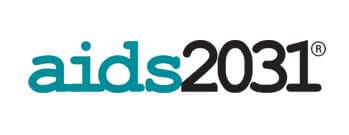The Challenge
Over the past 25 years, AIDS has imposed a huge cost, in economic and social terms, on many countries, communities, and households around the world. Although tremendous progress has been made, available resources are becoming increasingly tight as the global recession adversely impacts both donor and developing countries. In this context, there is an urgent need for better and long-term estimates of the cost and financing trajectories for the AIDS pandemic, and a fresh perspective on possible policy actions that could improve things in the coming decades.
The Opportunity
Results for Development Institute was asked to host and coordinate the aids2031Costs and Financing Working Group, composed of senior officials from governments, civil society, the private sector, and academic institutions from Africa, Asia, and Latin America, and developed countries.
Our Work

- The Working Group has focused on modeling and analyzing the long-term costs and financing of the AIDS epidemic, and examined scenarios in which major policy shifts now can better contain future spending, improve efficiency, and mobilize adequate, fair, and sustainable resources.
- The analysis compared a variety of different interventions, by cost and epidemiological projection, and recommends a series of actions that can move the world toward a better future in dealing with AIDS, in an efficient and effective way.
- The study’s findings were published in the 2010 report, Costs & Choices: Financing the Long-Term Fight Against AIDS. This report offers a view into the future of the epidemic, and provides advice on how to best handle the immense human and cost effects of HIV/AIDS.
- To complement these global analyses, the aids2031Costs and Financing Working Group has conducted case studies in South Africa and Cambodia. The governments of both countries played a leading role in shaping and carrying out the studies, which were designed to generate data and analysis to help national policy-makers in identifying policy options to use resources more efficiently, contain long-term expenditures and implement sustainable financing strategies. The case studies were also an opportunity to validate and refine the aids2031 costing, priority-setting and financial mobilization tools, so that these can then be made available for use in other countries.
To complement these global analyses, the aids2031Costs and Financing Working Group has conducted case studies in South Africa and Cambodia. The governments of both countries played a leading role in shaping and carrying out the studies, which were designed to generate data and analysis to help national policy-makers in identifying policy options to use resources more efficiently, contain long-term expenditures and implement sustainable financing strategies. The case studies were also an opportunity to validate and refine the aids2031 costing, priority-setting and financial mobilization tools, so that these can then be made available for use in other countries.
Click here to learn more about the South Africa case study and read the final report.
Click here to learn more about the Cambodia case study and read the final report.
Journal Articles
The Working Group’s findings were also published in two journal articles.
Click here for more information on the review in the Lancet.
Click here for more information on the article in Health Affairs.













